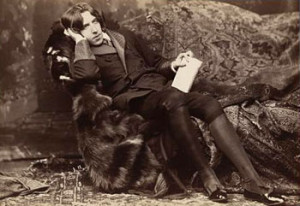It’s a fact that writers and editors sometimes disagree, and not just about Oxford commas (for the record, I’m with this guy). It’s also a fact, however, that if you want to write for money that someone else pays you, you’d better be prepared to act on their feedback.
It can, admittedly, be hard to acquiesce when you perceive the feedback to be a preference rather than something that will make the piece better. Or the kind of “editing just to edit” that can be frustrating, confounding or downright asinine. In such cases, you have to determine whether you should defend your original words, if the work and working relationship is worth the effort involved with revising, and, in some cases, if you can live with selling a tiny slice of your soul for $1/word.
On the other hand, some editors will recommend changes that ultimately will make your story more clear, logical and relevant. And since that translates into you looking like a much better writer, it is important that you recognize constructive feedback, as well as act accordingly. Truly, there is no sense in letting misplaced pride or unreasonable attachment to a particular sentence get in the way of a better article.
I recently received some good feedback from John McAlley, a terrific writer and the executive editor at Spirit Magazine. He had read my first draft of an article that’s in Southwest Airlines seatbacks this November and was concerned that the cultural reference I’d chosen for my lede might “strain the memories of even the ’80s hair-metal enthusiasts among our travelers.”
While I was completely in love with myself for finding a way to legitimately reference Billy Squier in a business article about managing your personal brand, John was right. And so, Miley Cyrus became the symbol of someone who learned the heard way that image really can be everything. At the same time, I was saved from losing readers in the first sentence.
That said, I am still in love with myself for finding a way to legitimately reference Billy Squier in a business article about managing your personal brand. Therefore, I am plunking it down below on the off chance some 80s hair-metal enthusiast will read and enjoy it.
“If you don’t think image is everything, just ask 80s rocker Billy Squier. With a string of sexy, masculine, guitar hero hits like “The Stroke” and “Everybody Wants You,” Squier was on a Def Leppard-esque rise to arena rock god-dom. And then “Rock Me Tonite” hit MTV. In just under five ill-conceived minutes, Squier went from a rock demigod to Flashprancing laughing stock.
Squier himself has credited the video for ruining his career. But why? Everyone from U2 to Lady Gaga has released a cringe-worthy video into the wild. Why did Squier’s have such a devastating effect? Basically, his projected image (something akin to Jane Fonda aerobicizing) didn’t mesh with what fans expected of a rock star (something akin to Robert Plant strutting seductively). In modern lingo, you might say his personal brand took a very public hit.
And while the sheer reach of Squier’s unfortunate performance is probably what interfered with his future Hall of Fame status, we’re all just a few missteps away from being knocked off our own professional pedestal. For better or worse, we all have a rep to protect.“
I’m also including a link to the Squier video referenced. It’s truly mesmerizing in its awfulness. Enjoy!



